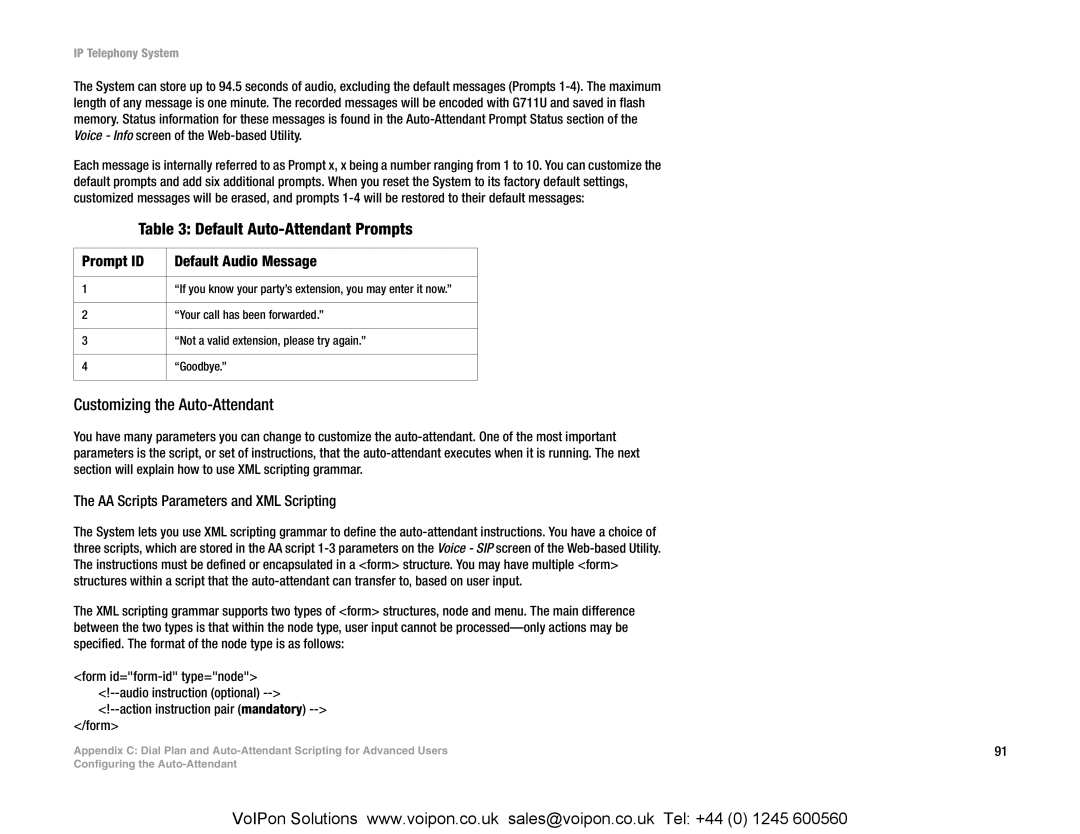IP Telephony System
The System can store up to 94.5 seconds of audio, excluding the default messages (Prompts
Each message is internally referred to as Prompt x, x being a number ranging from 1 to 10. You can customize the default prompts and add six additional prompts. When you reset the System to its factory default settings, customized messages will be erased, and prompts
Table 3: Default Auto-Attendant Prompts
Prompt ID | Default Audio Message |
|
|
1 | “If you know your party’s extension, you may enter it now.” |
|
|
2 | “Your call has been forwarded.” |
|
|
3 | “Not a valid extension, please try again.” |
|
|
4 | “Goodbye.” |
|
|
Customizing the Auto-Attendant
You have many parameters you can change to customize the
The AA Scripts Parameters and XML Scripting
The System lets you use XML scripting grammar to define the
The XML scripting grammar supports two types of <form> structures, node and menu. The main difference between the two types is that within the node type, user input cannot be
<form
<!--action instruction pair (mandatory) --> </form>
Appendix C: Dial Plan and | 91 |
Configuring the |
|
VoIPon Solutions www.voipon.co.uk sales@voipon.co.uk Tel: +44 (0) 1245 600560
